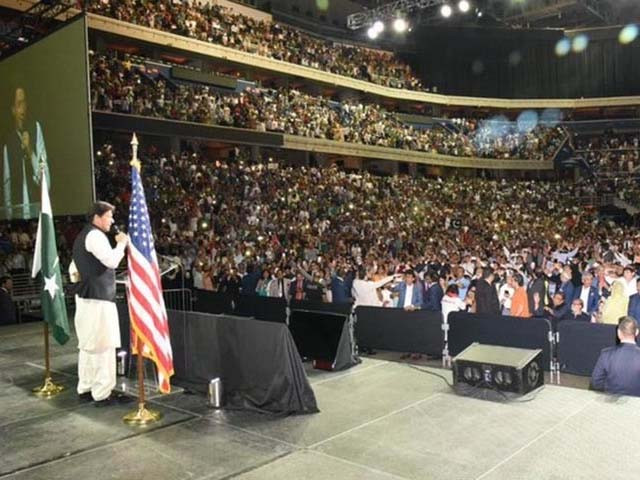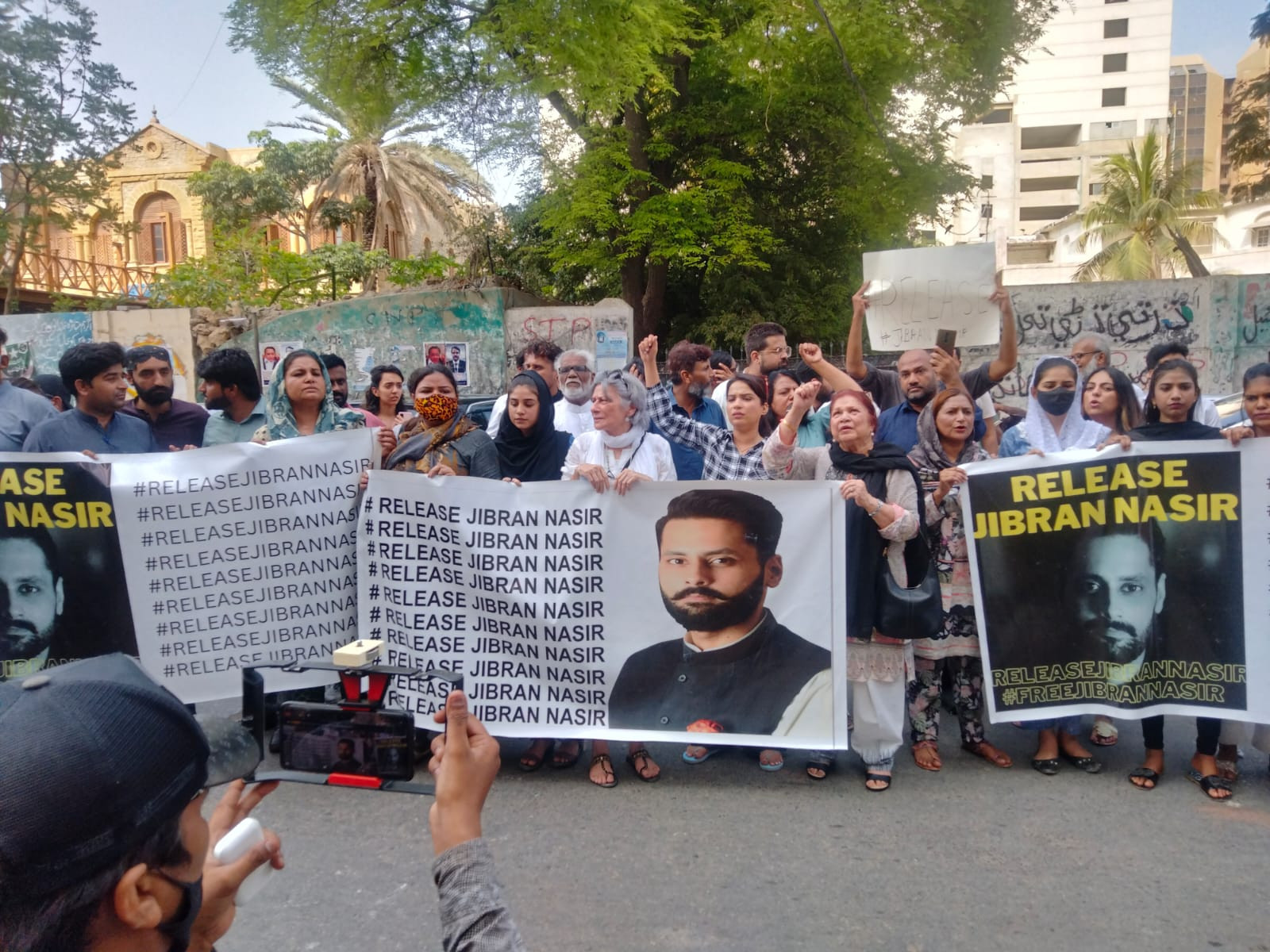
Should overseas Pakistanis be allowed to vote?
Pakistan currently seems to be embroiled in a deep constitutional crisis brought about by Imran Khan’s refusal to face the no-confidence motion. As these sentences are being written, the matter is in the Supreme Court of Pakistan, and it is not yet clear which way the verdict will swing. One question in particular is being raised a lot in the ongoing media discourse in Pakistan: why is Imran so desperate to hold immediate elections and avoid facing removal through a no-confidence motion at all costs?
According to some analysts, this is because he has found increased ‘popularity’ due to the no-confidence motion and wants to capitalise on it as soon as possible. However, I doubt this is the real reason. He may have energised his own base, constituting largely of the urban middle class, but by no stretch of the imagination is he a universally popular figure. The main reason for that is the dismal economic performance of his government characterised by constantly high inflation, a large trade gap and rising internal as well as external public debt. Moreover, despite its intense anti-corruption rhetoric during the 2018 elections, Pakistan under the Pakistan Tehreek-e-Insaf (PTI) government has slipped down to 140th place in the Corruption Perception Index, computed by Transparency International.
In fact, according to a recent Gallup poll, Nawaz Sharif is more popular than Imran in Punjab, Sindh and even Khyber Pakhtunkhwa (KP). From a rational point of view, early elections actually don’t suit PM Imran because if the opposition takes over now, they will be inheriting a very weak economy and the focus of public anger will shift towards them after a few months.
However, all this changes when one considers the voting rights Imran’s government awarded to around nine million overseas Pakistanis. The premier and his party are afraid that if the opposition comes into power, the first thing they will do is rollback this step. This, along with the opposition seeking some kind of ‘revenge’ against the PTI, is perhaps the real reason as to why Imran’s party is desperate to avoid sitting in the opposition benches.
Giving voting rights to overseas Pakistanis is potentially a game changer as an overwhelming number of these overseas Pakistanis apparently support Imran. In a close election, a few million votes can tilt the balance towards PTI in a big way.
But why do overseas Pakistanis support Imran Khan? And should they have a right to vote?
Interestingly,Imran’s popularity in the overseas community predates his rise to popularity in Pakistan. Whereas in Pakistan he started to gain political ground in 2011 due to PTI’s mammoth rallies, he was popular amongst the Pakistani diaspora even during the years of his political wilderness.
During my 10 years in America – first as a Masters and then a PhD student – I have talked to many overseas Pakistanis, particularly those who are permanent residents here and have also been active members of PTI’s social media groups. I have largely found that their rationale for supporting Imran is based on two factors: first, Imran Khan does not make them feel ‘ashamed’ to be from Pakistan; and second, the perceived corruption of the other political parties and leaders.
Image matters a lot for these people (at least here in America), and overseas Pakistanis want to be politically represented by someone charismatic and ‘impressive’. I have heard many times from them that they felt a great deal of embarrassment when Nawaz came to America and delivered his address by simply reading from a piece of paper. Imran, on the other hand, has been an international star and is articulate in English and therefore makes many overseas Pakistanis feel proud. During both his major visits to the United States, Imran reconfirmed their ‘faith’ in him by impressing former President Donald Trump during the first visit and then giving a rousing and, to be fair, impressive speech at the United Nations during his second trip.
The second major reason for the support is the perceived corruption of the other political parties. For the overseas Pakistani community, other major parties in Pakistan are thoroughly corrupt whereas Imran is seen as an extremely honest person. This is the kind of mindset which is also quite prevalent among the urban middle class residing in Pakistan. In fact, most of the Pakistani diaspora, particularly those residing in western countries, has the same urban middle class background, which perhaps explains the same mindset. Whereas many in Pakistan (due to more varied backgrounds) still see some worth in other political parties, for the overseas community such parties and leaders are totally corrupt. The obsession with ‘corrupt’ politicians and, in contrast, the ‘honesty’ of Imran reaches absurd levels in this community.
Now, given what has been discussed above, should overseas Pakistanis be allowed to vote? There are many who think that they should be allowed to do so as they send remittances back to the country and are still invested in the well-being of Pakistan.
I admit that overseas Pakistanis have the right to comment on political developments in Pakistan and even participate in some ways. However, voting is something which is different. While I acknowledge the contributions of the overseas Pakistani community, I don’t think they can understand and judge the nature of governance in Pakistan the way those residing in the country can.
One of the most important functions of an electoral democracy is to hold a government accountable on the basis of its performance through voting. It should be remembered that Pakistan follows what is known as the First Past the Post (FPTP) system, where even a few thousand additional votes in each constituency can sway the elections in a big way. In light of this, we must keep in mind that many overseas Pakistanis, particularly those who are permanent residents, have not been exposed to the economic and political management of any Pakistani government.
Their vote, as already discussed above, is going to be driven by other considerations such as ‘image’ and obsession with ‘corrupt’ politicians, and since they are sizeable in number, they may end up skewing the election towards PTI despite its poor governance record. They have not directly been exposed to PTI’s rule, so therefore they are not in a position to fairly judge it. In fact, giving them voting rights is unfair not only to other political parties but also to the people actually living in Pakistan who face the brunt of the ruling party’s economic and political hardships, and whose voting decision may end up getting adversely impacted due to this outside influence.




COMMENTS (41)
Comments are moderated and generally will be posted if they are on-topic and not abusive.
For more information, please see our Comments FAQ